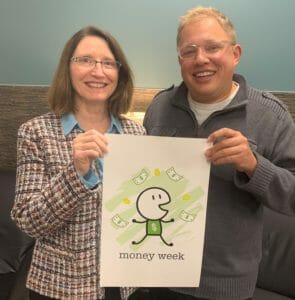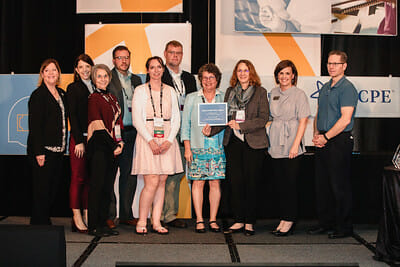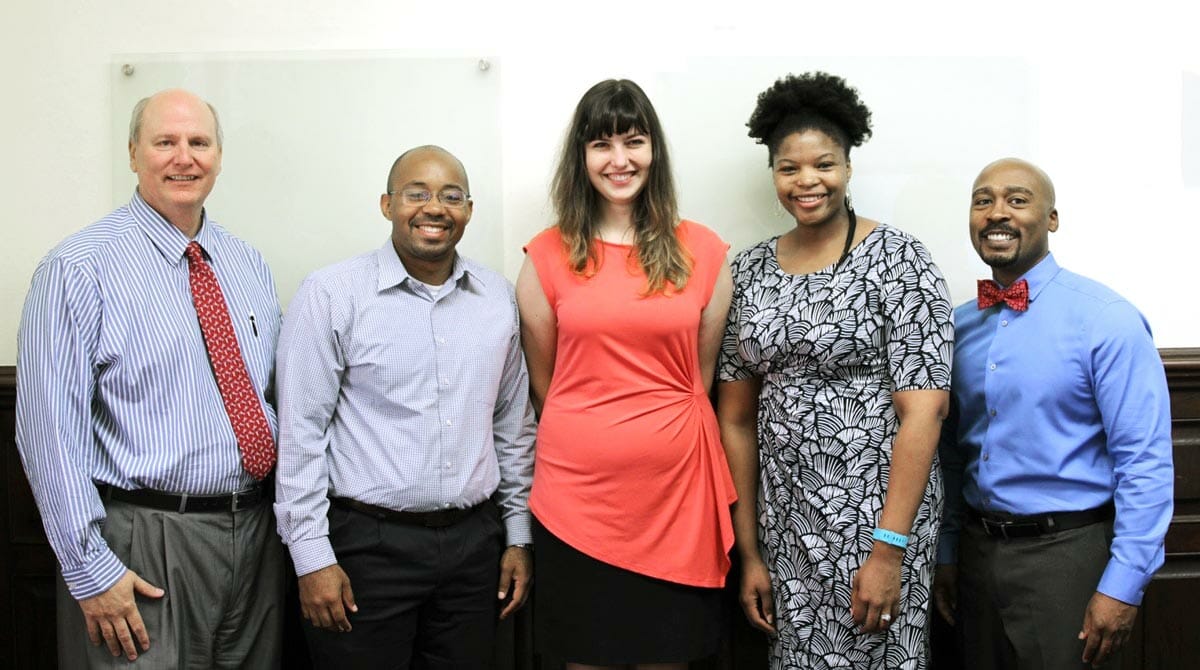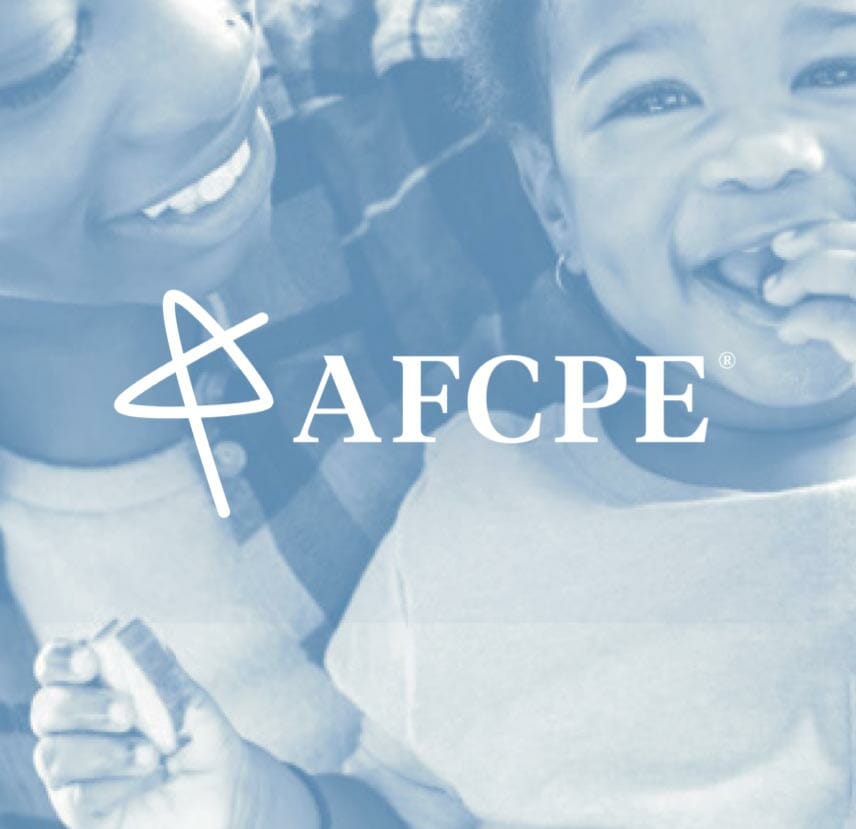Congratulations to all previous recipients of the Mary O’Neill Mini Grant!

2024:“Asset Management Properties (AMP) Financial Empowerment Project”
Pilar Pangelinan, AFC®
The AMP Financial Empowerment Project delivers accredited financial counseling and coaching services to HUD-assisted families living in public housing under the Guam Housing and Urban Renewal Authority (GHURA). The program enhances money management skills and equips residents with the tools to achieve long-term financial stability.
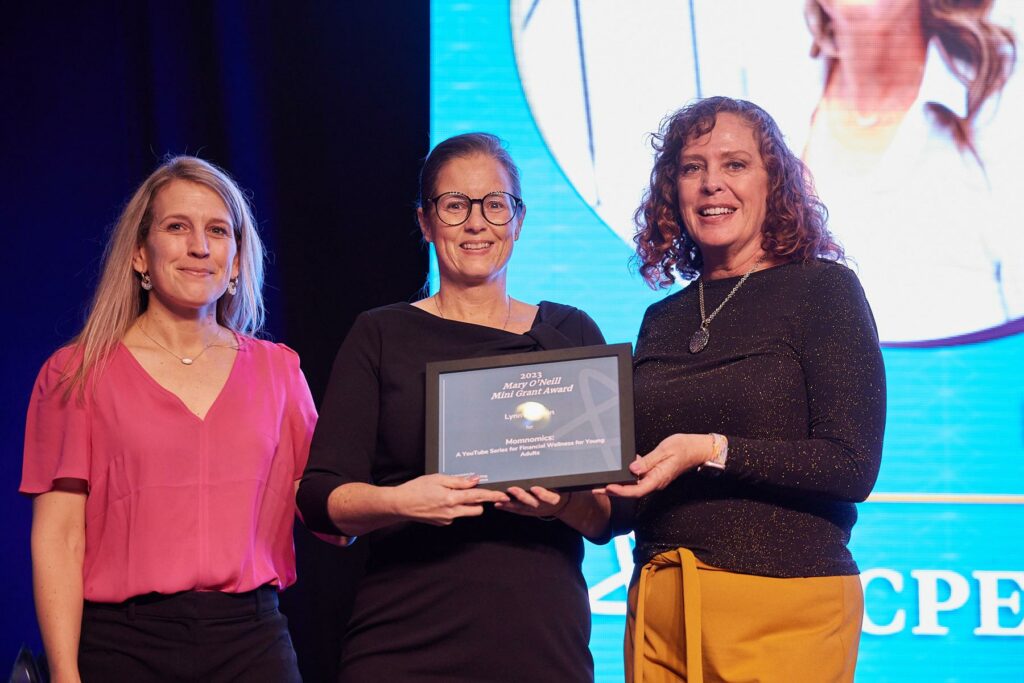
2023: “Momnomics”: A YouTube Series for Financial Wellness for Young Adults”
Lynn McHann, AFC®
The project, “Momnomics”: A YouTube Series for Financial Wellness for Young Adults,” aims to deliver crucial financial literacy education to young adults aged 18-30 through a series of engaging, high-quality YouTube videos, covering topics like budgeting, debt management, investing, and retirement planning in an easily digestible, relatable manner.
2022: Knowledge Empowering You (KEY) – Financial Coaching Sessions with Focus on Reentry
Texas Tech University – Center for Financial Responsibility
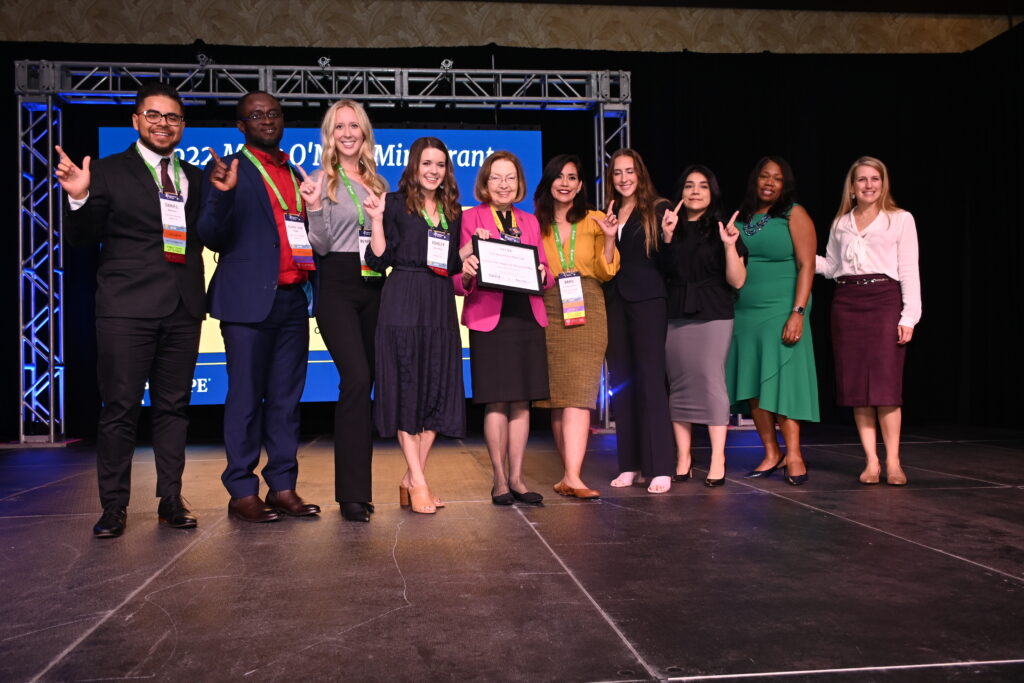
The Knowledge Empowering You (KEY) program utilizes Texas Tech University Personal Financial Planning students to provide educational outreach to the Lubbock area community.
Specifically, students in the organization must have completed the education requirement to sit for the AFC®. Providing university students with opportunities to work with a variety of populations is crucial in their development as financial professionals.
In order for KEY volunteers to effectively serve inmates at LCDC, they will need to participate in specialized training. Texas Tech’s Personal Financial Planning courses provide a foundation of knowledge that is needed to understand clients’ personal finances. Students working with LCDC inmates will need additional training on policy, resources, and strategies for working with individuals with criminal records. This training will include sensitivity awareness, community resources, and strategies when providing financial education surrounding reentry.
KEY students will provide financial coaching sessions at the Lubbock County Detention Center or virtually. Sessions will be one hour with a focus on the client’s personal finances. Topic areas can include the following:
- Financial goal setting
- Budgeting
- Opening a bank account
- Payday loans
- Credit report/score/repair
- Purchase a car/car insurance
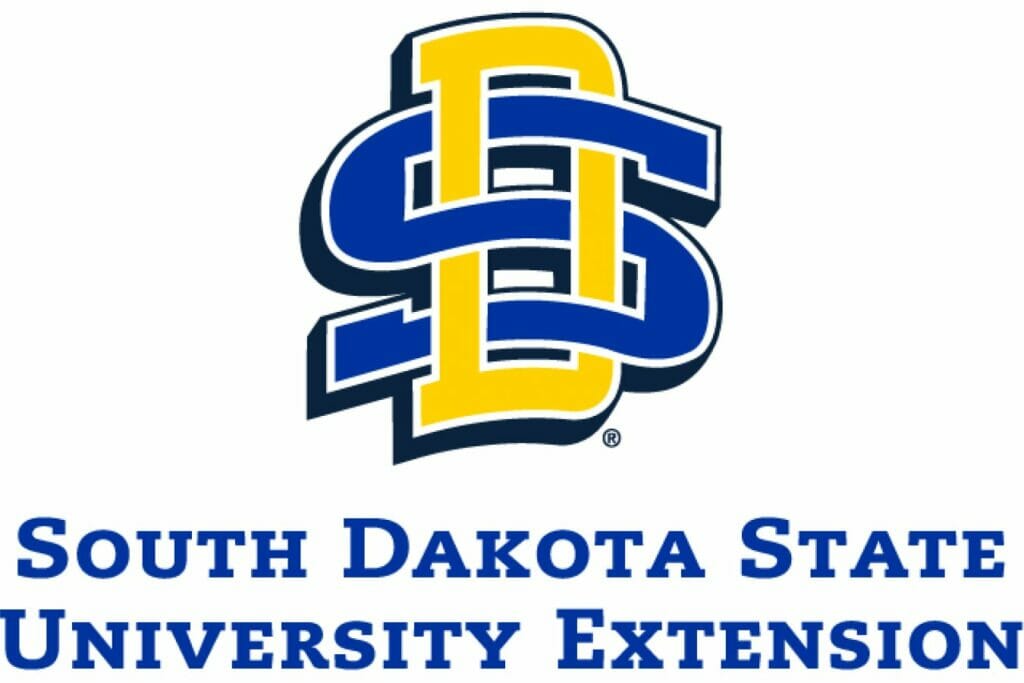
2021: Breaking Out of Financial Aid Fog
Lorna Saboe-Wounded Head and South Dakota State University Extension
The program “Breaking Out of Financial Aid Fog” is modeled after an Escape Room activity. Participants will be given a locked toolbox and a set of instructions. Inside the toolbox will be another locked box with multiple locks. Participants will need to complete a series of activities, in order, to get the code to unlock each lock. The activities will be assignments on the topics of costs of college, the difference between the sticker and net price of a college, the different types of financial aid, financial aid forms, and criteria for selecting a college. Participants will work in teams of three to five students. Activities will be designed to complete both with or without computer/internet access. The program will be facilitated by a classroom teacher or youth advisor for out-of-school programs (4-H groups, teen clubs, etc.).
2020: Make Money Make $ense
Joyce Serido and the University of Minnesota Extension
Make Money Make $ense is a research-to-practice collaboration to engage youth in a process of financial self-discovery.
Joyce Serido, Associate Professor and Extensions Specialist at the University of Minnesota, and her Extension colleague Sharon Powell, will develop a financial toolkit to engage underserved youth to raise awareness about the connections between the choices they make and the impact on their well-being. The financial toolkit will include training videos and activities to encourage youth to learn from both good and bad choices. The activities will help youth make the connection between the choices they make and the outcome of those choices. They will partner with local youth serving organizations to pilot the materials in out of school programs.
2019: Money Week
Christopher Sneed and the University of Tennessee Extension
Research has demonstrated that developing an awareness of spending and savings concepts early can lead to greater financial competence later in life. Money Week builds on this core understanding by providing financial education for limited-resource elementary school students. The education aligns with state standards for mathematics and National Jump$tart standards while also incorporating literacy as a key component of the program. Utilizing in-class instruction and read-aloud activities, Money Week covers essential financial education topics such as identifying money values, counting money, understanding wants and needs, using money, and managing money. An accompanying newsletter, sent home each day with the students, helps the entire family know the topics being covered while also highlighting easy to implement tips for saving money. Strong support from school staff and the local Extension office along with buy in from local banks and credit unions positions Money Week as an impactful program with potential for future replication. Implementing partners for this project include The University of Tennessee (UT) Extension Department of Family and Consumer Sciences, UT Extension – Knox County, and Green Magnet Elementary School.
2018: Double Estate/Legacy Planning: For persons with Alzheimer’s/other dementias and their caregivers.
Marsha A. Goetting plus the Legal and Financial Committee of the Montana Alzheimer’s Workgroup
A caregiver is faced with not only taking estate/legacy planning steps for a loved one with Alzheimer’s, but also for him/her self. A packet of legal and financial resources will be made available for Montana caregivers who do not have access to computers or dependable internet services. Doctors, physicians’ assistants, and nurse practioners will be informed of the availability of the packets for distribution to their patients. The packet’s content will also be made available on the web. Partners include the Montana Alzheimer’s/Dementia Workgroup, Montana State University Extension, Alzheimer’s Association–Montana, AARP-Montana Chapter, Department of Public Health and Human Services-Senior and Long Term Care Division, and State Bar of Montana.
2017: Student Loan TIPs (Texting Intervention Project)
Lorna Saboe-Wounded Head, Kathy Sweedler, David Evans, Suzanne Bartholomae, Elizabeth Kiss, Erica Tobe, Terry Clark Jones, Joyce Serido, Mary Jo Katras, Graham McCaulley, Andrew Zumwalt, Carrie Johnson, and Peggy Olive
Student Loan TIPs is a texting intervention project for college graduates who will begin the student loan repayment process. Participants receive text messages about the repayment process and resources available to help make repayment decisions. Funds from the grant will be used to develop an educational toolkit for Cooperative Extension professionals that will include information and procedures on how to implement the program. A component of the toolkit will be a series of four podcasts about student loan repayment. Members of the team are all Family Resource Management Extension Specialists representing the North Central region.
2016: Expanding Middle School Financial Education in Diverse Neighborhoods through the Use of the Money Dawgs Program
John Grable, Michael Thomas, Michelle Kruger, Kimberly Watkins & Kenneth White
Money Dawgs was created as an alternative youth financial education initiative by AFCPE members teaching and taking classes in personal finance and financial counseling at the University of Georgia. Members of the team, from left to right, include John Grable, Michael Thomas, Michelle Kruger, Kimberly Watkins, and Kenneth White. The team has been providing week-long camps for middle school age children to learn about money management topics, wealth accumulation strategies, and general personal finance topics. Funds from the grant will be used to expand the Money Dawgs concept to meet the needs of children living in economically vulnerable neighborhoods.
2015: Starting Over After Foreclosure Toolkit
Erica Tobe and Brenda Long
The Starting Over After Foreclosure toolkit was developed to provide situation appropriate content to meet the unique needs of families. Early marketing efforts with Michigan partners identified an overwhelming need for this material and a need for additional avenues for delivery. To provide clients help beyond the toolkit format, MSUE is also in the process of developing a series of eight free stand alone classes with interactive videos that will be housed on the MSU Desire2Learn course management system. Each class utilizes toolkit content, Reflect and Connect questions and scenarios, downloadable/fillable worksheets, and web-based resources!
2014: SaveIt! App
Emily D. Sorenson & Clinton G. Gudmunson, Iowa State University
Building College Sudent Financial Literacy: A powerful tool to harness everyday spending decisions in reaching personal financial goals and to see the progress each step of the way. Designed as a teaching tool to set goals, track progress, and motivate good savings behavior. Development of the app was influenced by intervention principles of “gamification” and behavioral economics. Learn More.
2013: Financial Education Boot Camp
Ruth Brock, AFC®, Alabama Cooperative Extension
Financial Education Boot Camp: Building Teachers’ Capacity to Teach Personal Finance was a pilot program for Alabama Teachers, adapted from Barbara O’Neill, Rutgers University, and was conducted in 10 counties across the State of Alabama. One hundred ten teachers were trained to teach personal finance during the 2013-2014 grant cycles. The program was needed due to a new personal finance graduation requirement for Alabama public schools. Using a train-the-trainer model, teachers now have the knowledge, skills, and resources to share and replicate materials with others.
2012: Money Matter$: Train-the-Trainer Video for Young Adults with Autism Spectrum Disorder
Paul Goebel & Rachel Grimes, AFC®, University of North Texas (UNT)
The Money Matter$ video project combined the financial literacy training expertise of the Student Money Management Center with the ASD programming expertise of the University of North Texas Kristin Farmer Autism Center to develop basic budgeting curriculum for young adults with ASD; create a train-the-trainer video to assist financial literacy practitioners in presenting basic budgeting curriculum to young adults with ASD; and provide free access to the video to financial literacy practitioners and trainers, families, schools, and ASD programming specialists as a download from the UNT SMCC and the Kristin Farmer Autism Center websites.
2011: Using Pocket Trackers in the Colorado Small Steps to Health and Wealth (SSHW)
Nancy Porter, Colorado State University & Laurel Kubin, AFC®, Colorado State University Extension
The first recipients of the $2,500 Mary O’Neill Financial Education Mini-Grant developed a “Pocket Tracker” teaching tool for use in the Colorado Small Steps to Health and WealthTM program. The Pocket Trackers are given to program participants to reinforce the “Track Your Current Behavior” strategy. The tool helps participants become more aware of how much they eat, move, and spend throughout a typical day or week, providing a baseline necessary for setting goals to improve their health and/or wealth by taking specific small steps. Each attendee in this session will receive a Pocket Tracker for personal use.
Comments are closed.

